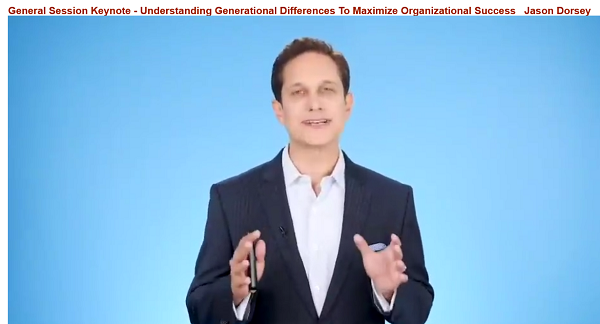Heart Patient Launches SelfiHealth, a Connection Platform for People with Chronic Health Issues
A heart patient’s personal journey later inspired him to create a platform that uses matching technology to foster meaningful connections among individuals with chronic health problems.
Aimed at Millennial, GenZ and younger patients, SelfiHealth (Hoboken) provides a space where individuals facing health challenges can find support and understanding, just as dating apps facilitate romantic relationships. Once matched, people can message and video chat, access resources from trusted nonprofits and take advantage of in-app events to connect them meaningfully with others who share more than just their conditions.
The company was founded by Zach Gotlib and Jared Firestone, both of whom had experienced firsthand how the lack of meaningful peer support can contribute to worsening health outcomes.
Gotlib’s Early Struggles with a Congenital Heart Defect
NJTechWeekly.com spoke to cofounder Gotlib, who was born with a congenital heart defect and had his life profoundly altered at the age of 12, when he was told he could no longer participate in sports or gym class due to his condition. This restriction left him feeling isolated and disconnected from his peers, as he spent his time at home, unable to engage in the physical activities that were once very important to him.
However, it wasn’t until Gotlib was 20 years old that he underwent open-heart surgery to replace his aortic valve, a procedure that further reshaped his life. Following his surgery, Gotlib moved to New York City for law school and became actively involved with the American Heart Association, where he was recognized as the 2017 Survivor of the Year. It was during this time that Gotlib began to discern a common theme among fellow patients: the desire to connect with others who faced similar health challenges.
As Gotlib became more involved with the American Heart Association, he joined the association’s Young Professionals Board of Directors, and found himself surrounded by individuals who not only had similar health experiences, but also shared his age, goals and geographic location. These newfound connections led Gotlib to embark on a mission to raise money for the American Heart Association by running marathons.
However, Gotlib’s journey took an unexpected turn when he suffered a hip injury that required multiple surgeries and left him in chronic pain for six years. This period of physical and emotional struggle further exposed him to the limitations of traditional healthcare support systems.
From Dating Apps to Health Connections
Recognizing the inadequacies of existing online health support communities, which often rely on discussion boards that failed to foster meaningful connections, Gotlib drew inspiration from dating apps. These apps excel at connecting individuals based on shared interests and values, leading Gotlib to question why a similar technology couldn’t be harnessed to connect individuals with similar health concerns.
Cofounder Firestone, whom Gotlib met at law school, had run track in college at Tulane, but had a stroke while in law school. “We bonded at that time, before we had this concept, because even though we had different conditions, we both were confronted with conditions that might have kept us out of sports.”
The two got together and collaborated on what became SelfiHealth. The result is a health-connection app that operates much like a dating app, asking users questions about their health concerns, interests and values to pair them with others who share similar experiences and could provide meaningful support.
An in-house software developer created the tech stack, Gotlib said. “We also have a team of eight advisers that range from C-suite executives at hospitals to Dr. Sonal Bhatia, the chief medical officer for rare disease at Pfizer, to Susannah Fox, the former chief technology officer of the U.S. Department of Health and Human Services.”
Gotlib said the app provides an intuitive platform that speaks directly to a younger demographic of health consumers who do everything on their phones. By offering a space where users can connect based on shared experiences and concerns, the app aims to break down the barriers faced by those seeking peer support via traditional online forums.
“We monitor peer health support, easily, by suggesting matches for people where they can then message and video chat each other one on one. And we also connect them to resources from trusted organizations like the American Heart Association, allowing them to take control of their health journeys and get valuable support combined with trusted resources.”
Expanding to Oncology, Transplants and Rare Diseases
The app was launched first for cardiovascular patients to prove out the concept, since the founders were familiar with that niche. Now the app supports oncology, transplant and some rare-disease communities. Added Gotlib, “the rare-disease community is really underserved. They don’t get the amount of funding that these bigger organizations provide. So they don’t have these spaces. And what we’ve heard from a lot of organizations is they would love to build something like this for themselves, but they don’t have the funds to do so.” The startup would like to fulfill that role.
SelfiHealth expects that hospitals will want to adopt the app, given the company’s concentration on partnerships with nonprofits for each disease it covers. Gotlib explained that hospitals are mandated to reduce readmissions under “Obamacare,” and are fined when they fail to do so.
“The U.S. Surgeon General released findings earlier this year showing that we have a loneliness epidemic, and he equated the health consequences of a lack of social connection to smoking 15 cigarettes a day. But he also showed that people specifically with heart disease who don’t have social connections have a 55 percent greater risk of hospital readmission, 29 percent greater risk of heart attack and a 32 percent greater risk of stroke.”
Software as a Service Offering
The SelfiHealth founders plan to sell the platform as a software-as-a-service (SaaS) for hospitals, which would make it available to patients who have been released, with a one-button sign-up through the hospital’s electronic health records system.
“Our hypothesis is that by connecting people in a more meaningful way, providing one-on-one support, people are more likely to share about what they’re going through, more likely to hold each other accountable going through the same journeys at the same time. And, combined with the resources available from trusted organizations, they will be more likely to get the help they need, less likely to go running back to the hospital, and ultimately have a better experience associated with the hospital.”
Gotlib acknowledges that there are some competitors in the field. “Thankfully, none of them match patients one on one, but there are tons of online forums, discussion boards. They make money in several different ways. One is advertising. They’ll take drug advertising on their website. The second thing they do is they take the data generated by participants and they sell it, and that’s also been a concern for us, as well as the organizations we work with. We don’t do that. That’s not how we make money because we really want to create this trusted platform for people.”
SelfiHealth is currently participating in an accelerator with 30 mental-health and digital-health tech companies. Gotlib said it’s been educational just being surrounded by these other 29 companies, seeing what they’re doing in the space and how they’re talking about it. He believes the experience will help take SelfiHealth to the next level.



